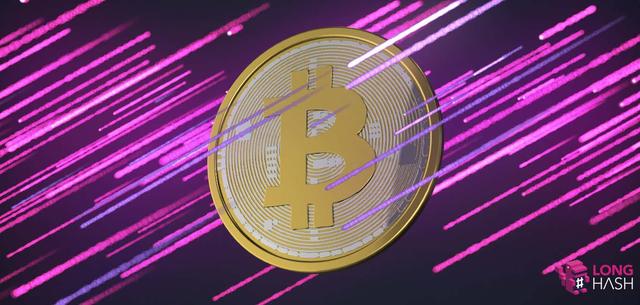Why are derivatives of the Lightning Network important?
Source: LongHash
Editor's note: The original title was "Why are derivatives of the Lightning Network important?" ". This article has been deleted without changing the author's original intention.
The Lightning Network can help Bitcoin expand by processing more payments in a fast, cheap, and reliable way. But developers are working hard to make this payment network fall apart from buying coffee and small transactions.
Eventually, you will be able to use the Lightning Network to link real-world assets to Bitcoin. Many companies are trying to make this idea a reality, although it is not clear how much decentralization this solution can achieve.
- In the era of negative interest rates, the USDT status is not guaranteed?
- Vitalik: The benefits of complete decentralization and "limited" centralization, the blockchain can do both
- Guangzhou City issued "Several Measures to Accelerate the Creation of a Digital Economy Innovation Leading City", many of which are related to blockchain
The basic idea is that you will be able to effectively hold U.S. dollars, gold, or Apple stock on the Lightning Network in the form of holding Bitcoin (stored in a multi-signature address). In this way, users can hold derivative assets (that is, a financial instrument whose price is based on the value of other assets) in a potentially “censorship-resistant and anti-confiscation” environment.
Therefore, users can hold $ 100 gold in the form of bitcoin derivatives, and enjoy the benefits of gold in a relatively unlicensed manner, as opposed to having $ 100 bitcoin. In the form of a third party). Bitcoin's short-term price volatility is a major factor hindering its widespread application, so it is a better marketing strategy for ordinary people to associate more stable assets.
Such functions are already on the Bitcoin blockchain (this is how Abra works), and are also quite common in DeFi applications on the Ethereum chain (such as MakerDAO and Synthetix). The operation of these projects may be different, but ultimately require users to lock a part of Bitcoin, Ether or other cryptocurrencies in a multi-signature address or smart contract. Then use one or a set of price prediction machines to link these cryptocurrencies to real-world assets. The price prediction machine is generally a third party that provides real-world data for the cryptocurrency network, such as the price of gold and the results of sports events.
One way to bring these derivatives to the Lightning Network is Discreet Log Contracts (DLC)-"Cautious Log Contracts". DLC can deliver external information to the cryptocurrency network while limiting existing issues related to scalability, privacy, and trust. It was proposed by Tadge Dryja of the Massachusetts Institute of Technology Digital Currency Initiative (DCI). He gave a lecture on DLC and how it operates on the Lightning Network more than two years ago. But this feature is not yet open to everyday users.
Many companies including SuredBits are currently exploring the convenience that DLC will bring to Lightning Network users.

Nadav Kohen of SuredBits told LongHash:
"I believe that many people are considering adopting it to design intermediary (non-custodial) financial contracts. But I also envisage other use cases, such as betting, rainbow network channels, etc. I think the final DLC prediction machine will be Custodian contract integration to improve privacy. "
From Kohen's point of view, DLC can also use Bitcoin to hedge any real event, not just a certain asset. This means that derivatives based on sports events, weather forecasts, or the results of any event in the real world may also appear.
From the perspective of bitcoin wallets, the user's Lightning Network's bitcoin can be hedged against local fiat currencies by default, on the one hand to improve the friendliness of users to use the wallet, on the other hand to avoid using volatile cryptocurrencies to pay for the morning coffee Taxes and fees.
Far from perfect
It should be pointed out that due to the problems of the oracle machine, from the perspective of anti-censorship, hedging on the Lightning Network (and all other cryptocurrency networks) is quite limited. Because oracles bring real-world information to cryptocurrency networks in a way that does not require trust and censorship, if price oracles are also subject to regulatory or shutdown risks, then the original intention of adopting these networks basically does not exist.
The DLC of the Lightning Network may be able to improve scalability, privacy, and limit the degree of trust in price oracles, but it is unclear whether the oracles in these systems are enough to "censor" without letting everyone's efforts go to waste. Therefore, the introduction of third parties into this scenario may not necessarily enjoy the price stability that will follow.
LongHash , use data to understand the blockchain .
We will continue to update Blocking; if you have any questions or suggestions, please contact us!
Was this article helpful?
93 out of 132 found this helpful
Related articles
- Now, it takes 1 BTC to conduct a 51% attack on the BCH network for 1 hour
- Featured | Billionaires: Bitcoin's chances of becoming a global reserve currency have increased
- 16 cases from the bottom of the Chinese blockchain platform: the application layer is clearly differentiated
- Mining Monthly Report: The market plunged and the computing power was lowered. Where should miners go?
- Opinion | The evolution of money in the New Crown epidemic: Cryptocurrencies are becoming more attractive
- The three death spirals of mining: two pictures to understand what happened to Jianan?
- Contribution takes "credit currency", a town in Hangzhou explores a new way of blockchain rural governance






